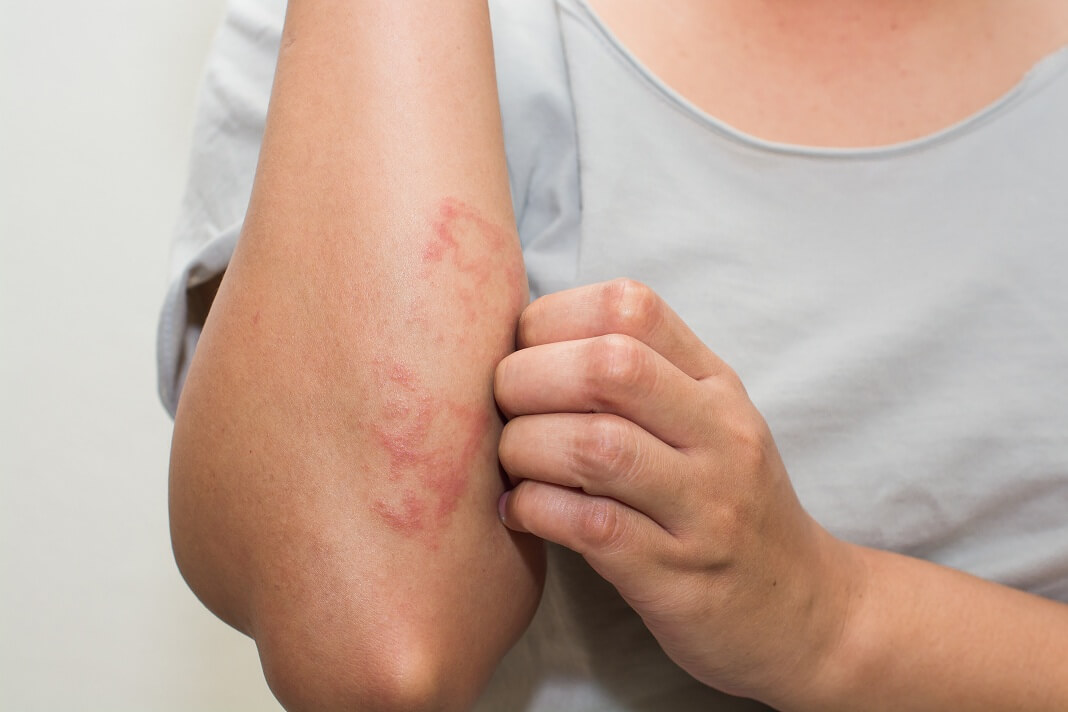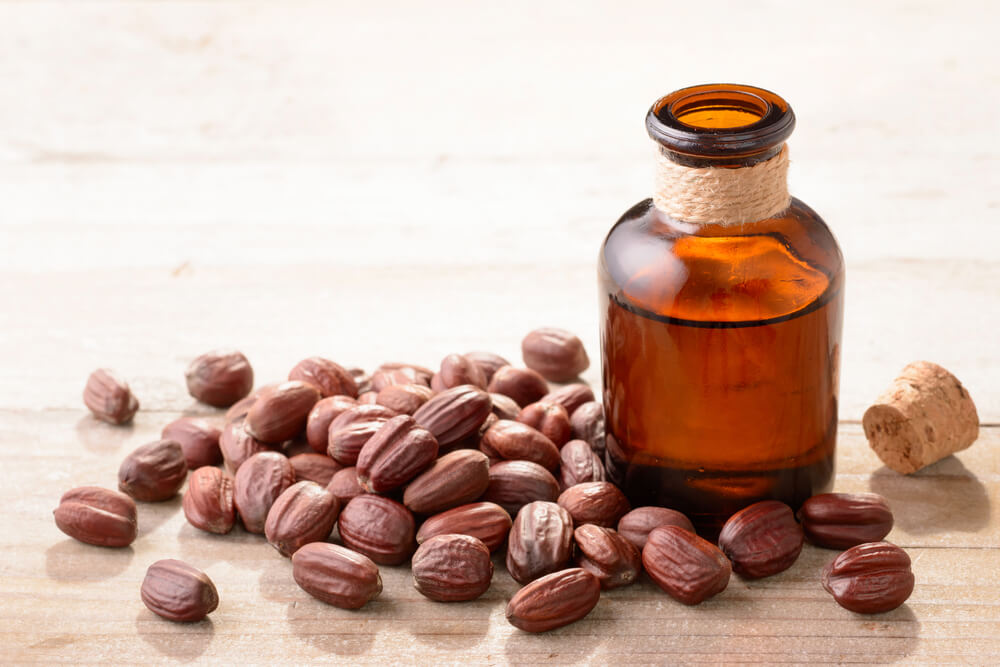Incredible Benefits of Using Tree Tea Oil for Eczema
Eczema is a skin condition marked by itchy and inflamed patches of skin. It is also called atopic dermatitis and is very common in babies and young children. It appears on the faces of infants. Eczema can come in a variety of types in children, teens, and adults. Pain is not all that makes eczema difficult. Pain, itchiness, and redness are the physical symptoms, what remains hidden is depression and social isolation of the patient.
Eczema can make the appearance of an individual awkward, thus making him less confident and anxious. Therefore, it must be cured as soon as possible. Tea tree oil is an excellent remedy which efficiently cures eczema in the fastest time possible.
It also possesses excellent antimicrobial, anti-fungal, anti-bacterial and anti-inflammatory properties that aid in the treatment process. With using natural tea tree essential oils for eczema treatment, the process of curing eczema is no longer a tough process.
- Eczema Causes and symptoms
- Tea tree oil for Eczema
- Best Remedy for Eczema
- Application of Tea Tree Oil
- Do’s and Don’ts
- Other Home Remedies
Table of Contents
Types of eczema

The most common type of eczema is characterized as dry and itchy skin that often appears with a red rash. Some other types of eczema include:
1. Contact dermatitis:
When the skin comes in contact with irritants, this occurs. This condition is characterized by burning, redness, and itching. When the irritant is removed, the infection goes away.
2. Dyshidrotic dermatitis:
It is more common in women and causes itchy and scaly patches on the skin. The patches become red, cracked and painful. It affects the fingers and palms of the hands and soles of the feet.
3. Nummular dermatitis:
It is more common in men and is caused in the winter. This usually affects the legs and lower parts of the body and causes dry and round patches on the skin.
4. Seborrheic dermatitis:
This causes itchy, red and scaly rashes. It is caused particularly on the scalp, eyebrows, and eyelids. It is also caused on the sides of the nose and behind the ears.
Causes of Eczema:

The real cause of Eczema is not known yet. The recent studies have shown that eczema is linked to an overactive response by the immune system caused due to an irritant. This response causes eczema. In other words, eczema is caused due to the response of our body to the attacking microorganism(1).
Besides the responses, inheritance can also be a significant cause of eczema. Members of the families with records of allergies or asthma are seen to be more vulnerable to eczema. Fortunately, eczema is not contagious. It does not spread by contact between two people.
Symptoms of Eczema
Eczema symptoms are very easy to be detected. Eczema comes with its own set of symptoms which helps the patient and health care expert know its presence. Here are some of the symptoms of eczema:
- Itching is the first symptom in almost all kinds of eczema. In some cases, itching may start before the rashes appear.
- Rashes most commonly appear on the face, back of the knees, wrists, hands or feet. Other areas are also vulnerable to rashes.
- Areas affected by eczema appear very dry, thickened or scaly.
- The symptoms differ with the skin tone of the individuals.
The affected areas are very clearly visible in fair-skinned people, the affected areas appear reddish in the beginning and turn brown in later stages(2). However, in dark-skinned people, eczema can be seen as pigmentation in the affected areas. The color of the skin may grow lighter or darker than the other parts of the body.
Why Tea tree oil for treating Eczema

Tea tree oil which is an essential oil is derived from Melaleuca alternifolia, a plant which is native to Australia. The use of tea tree oil for skin problems have been followed for more than 10 decades. This oil is composed of various ingredients, all of which help your skin in one or the other ways. Tea Tree oil contains, sesquiterpenes, terpene hydrocarbons, and monoterpenes, all of these make Tea Tree oil a medicinal herb.
Tea tree oil has various other advantages for the skin than just curing eczema. Some of its benefits for the skin are:
- It helps cure persistent dandruff. In most cases where tea tree oil is used for dandruff, it is found to be 100% effective; dandruff rarely happens again after tea tree oil application.
- It reduces bacteria in the mouth and skin, thus protecting the body from infections due to external agents.
- Its anti-fungal properties help in treating athlete’s foot and fungus.
- Its antiseptic properties treat minor skin irritations and wounds.
- It is known to be significantly useful when it comes to treating acne.
What makes tea tree oil an apt solution for treating eczema?
It is one of those unique essential oils for eczema treatment which possess all antibacterial, antiviral, antifungal, antimicrobial and antiprotozoal properties. This oil helps in fighting infectious agents which cause eczema and reduces the infection.
This oil antifungal, and anti-inflammatory properties prevent eczema from spreading. Tea tree oil also reduces itching caused by eczema and provides comfort. Tea tree oil is rich in antiseptic properties, which helps in soothing the skin as well when you suffer from eczema.
It is an efficient alternative to conventional chemical treatments. It is known to treat various diverse conditions and symptoms that affect skin, nails, and hair. Besides, it is also used as a deodorant, insect repellent and mouthwash due to its excellent medicinal properties. Tea tree oil can improve the overall appearance of your skin. Therefore, Tea tree oil is highly advantageous for your skin.
How to apply tea tree oil to treat eczema?
The process of applying tea tree oil to treat eczema is not very tough. Just stick to the set of instructions provided for use. Make sure you follow all the instructions correctly, without any mistakes.
- The most crucial part is selecting the right tea tree oil according to your skin type. There are many oils available in the market, but not all oils are 100% natural. So make sure the oil you choose for yourself is entirely organic and has no added chemicals. Purchase the oil only after you are sure about its credentials of being original.
- Mix the tea tree oil with a carrier oil. Mix it well in proper ratio. This ratio is usually mentioned in the oil pack. But it is always better to consult a health care expert before applying the tea tree oil on the affected area.
- Before applying the tea tree oil on to the eczema affected areas, perform a patch test to ensure that the mixture is suitable for your skin. After successfully passing the patch test you have the solution for eczema.
- Apply the mixture gently on your skin. Keep the affected area covered after application of tea tree oil.
Dos and Don’ts
While using Tea tree oil for treating eczema, know that it is not be used orally. If ingested, it can cause drowsiness, loss of motor control, confusion, rashes, hallucinations, and diarrhea.
Expecting and lactating mothers must consult a health care expert before using the oil. There is no research on the safety of tea tree oil use in infants. Therefore, Tea tree oil must not be used on them. A pediatrician must be consulted before tea tree oil is used on children. Moreover, boys who have not yet hit the pubertal age should not use tea tree oil.
Precautions:
Although tea tree oil is usually considered safe for topical uses, there are some cons too. Here are some precautions to keep in mind before use:
- Always dilute the tea tree oil before applying it to the skin. Make sure you do not apply it directly as it can cause harm. It can be used with carrier oils like olive oil, coconut oil, and almond oil.
- The approximate ratio for the amount of tea tree oil to that of carrier oil is 12 drops of carrier oil for 1 or 2 drops of tea tree oil. Make sure you stick to this ratio.
- Be careful when using tea tree oil around the eye area.
- Exposure to external environment after immediate application can cause redness and irritation.
- Perform a patch test to make sure your skin is not allergic to tea tree oil.
Also Read: Amazing Benefits and Uses of Tea Tree Oil
Other Home Remedies For Eczema:
1. Coconut oil:
It has a high content of fats and oils which helps in filling pores of the skin thus preventing skin from drying. Coconut oil cures itching and irritation in the skin.
2. Jojoba oil:

It is a liquid wax that contains fatty acids and fatty alcohols which penetrate deep into the skin and moisturize the dry skin.
3. Honey:
Honey is a great moisturizer, it helps remove skin dryness and cure symptoms of eczema
Tea tree oil for eczema is one of the most effective remedies for this condition. It will help you get rid of the symptoms and discomfort caused by eczema in Quicktime. You may consult an expert if you are not sure about the quantity that you must use for the condition.
Using the home-remedies mentioned above along with using tea tree oil for treating eczema will help you recover quickly. Leading a healthy lifestyle and pursuing an active routine is the key to leading a disease-free life.




